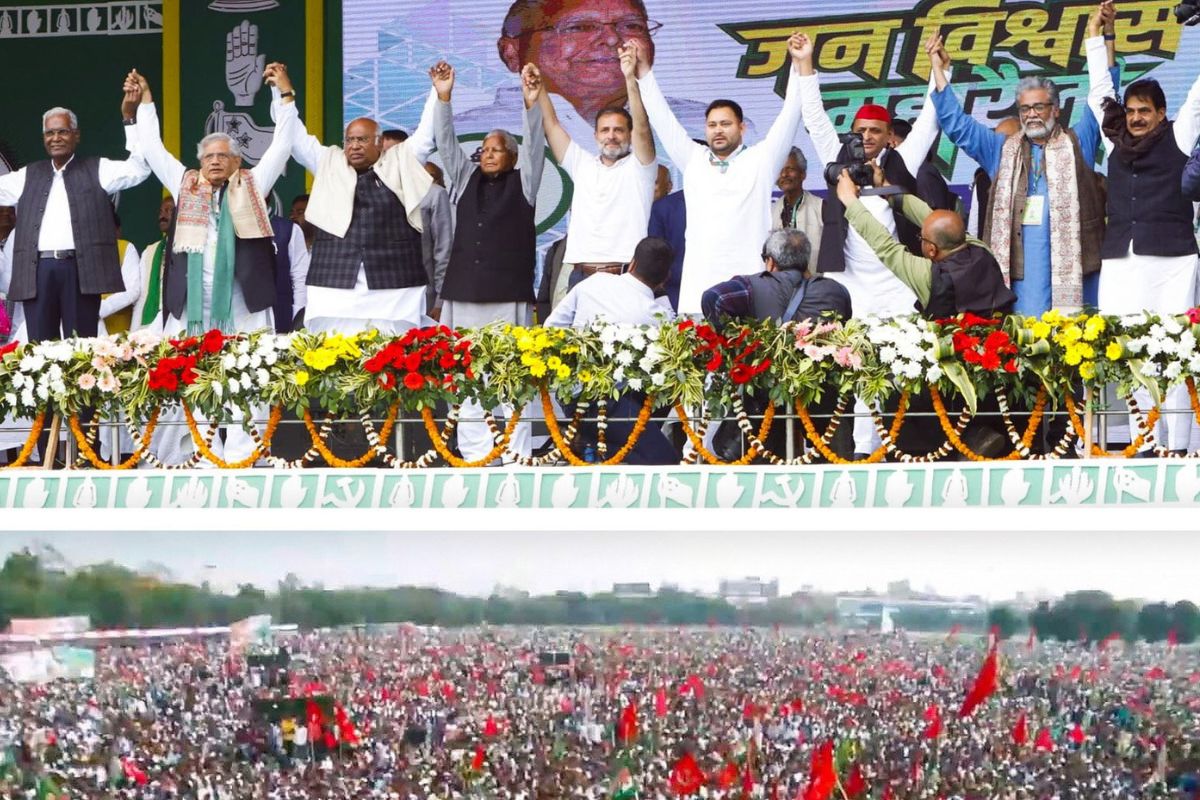The INDIA alliance must draw some succour from the response to its rally in Patna on Sunday. The numbers were significant, some estimates putting them at close to a million, and suggested that the machinations that saw the transfer of allegiance of Chief Minister Nitish Kumar from this alliance to the NDA may not gone down too well with voters.
The essence of this rally lay thus not just in its magnitude but in the resonance of the issues articulated amid the fervour.
Advertisement
While the rally may not have got the play it deserved in mainstream media, the event did serve to articulate the interweaving of a broader political and ideological discourse.
The rally became a platform where concerns found a vocal expression, transcending the immediate political rhetoric. Economic sanity and justice for the disempowered masses emerged as focal points.
The call to hold cronies accountable resonated strongly, challenging the policy of privatisation that has eroded public wealth. The gaping economic inequality, marked by record levels, demanded rectification through job creation and empowering the common man’s purchasing power. Beyond economic matters, the rally articulated a broader vision.
It advocated for the autonomy of state agencies, a transparent rule of law, and the restoration of freedom of expression.
The demand for unbiased policing and investigations, detached from the influence of high offices, became a clarion call for reforming a system, whose corrosion, it must be fairly admitted, began under some of the constituents of the INDIA alliance.
Academic institutions and watchdog establishments were not left untouched in this narrative; speakers urging for their emancipation from undue influence.
The electoral system itself faced scrutiny, with a plea to free it from pressures that cast doubt on its decisions. Criticism of the government, a cornerstone of democratic philosophy, was emphasised as essential and distinct from anti-state activity.
The constitutional injunction for the state to treat all religions equally was reasserted, urging a departure from divisive narratives.
As the rally’s echoes linger, it sets the stage for a potent electoral campaign. The combined opposition, buoyed by the momentum of March 3, will aim to steer the narrative away from guarantees towards substantive issues.
The significance of this moment is not lost, coming just twelve days before the ides of a memorable month. It suggests the possibility of a peaceful, democratic engagement that revitalises the republic.
The opposition, elements of it now seemingly united, must tread carefully, mindful that divisive actions may cost them a place in destiny for a considerable time. The opposition’s strength lies in unity, and their success in leveraging this moment could shape the future trajectory of Indian democracy. While one swallow does not make a summer, Patna sent out a message.









